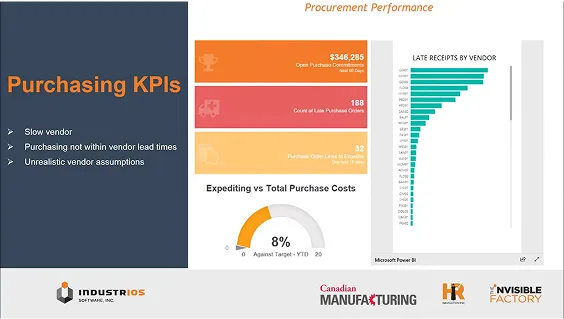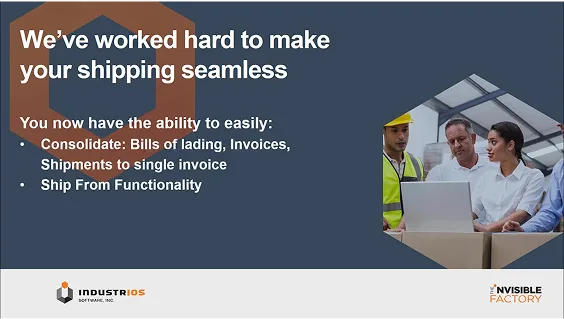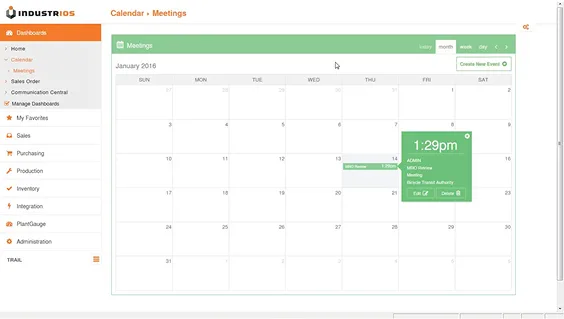Who’s cashing in on ERP cloud consulting?
Confused about how to take your manufacturing IT to the next level? You’re not alone. ERP consulting companies are creating dense fog around Cloud computing for discrete manufacturers.

To create real sustainable change in your manufacturing process, you need an ERP system that offers the right fit for your particular business. Staying on top of current IT best practices to properly manage processes is an ongoing issue for discrete manufacturers. Knowing how and when to leverage the proper technology is part of the journey, but how do you know if you are headed in the right direction?
The ERP Elite would have you believe that, in order to be successful at keeping your manufacturing process competitive, all of your business needs to be in the cloud, all of the time. And that theory has some serious flaws.
Who are the “ERP Elite”?
“ERP Elite” are individual consulting firms performing as expert advisers to discrete manufacturers searching for the best ERP software solution. They are hired to do all of the heavy lifting on learning the specific manufacturing needs and making recommendations for a purchase.
What makes them elite?
Consulting and accounting firms offering ERP advice are supporting each other in propagating the myth that the only real ERP solution is a single-source cloud solution. This keeps the money flowing to the coffers of the elite group of the largest software providers, usually offering single-source cloud as the definitive solution. In reality, cloud solutions are varied and diverse in nature, and when approached in a responsible manner, determining which cloud implementation works for each business has to be done on a case-by-case process.
“The same can be said of single-source solutions, or ‘ERP Jack of all trades,’” comments Jacques Decarie, Vice-President Sales and Marketing, IndustriOS Software. “These type of solutions will fit any industry—pharmaceutical, metal fabrication, insurance, etcetera.” Offering only single-source solutions means that they don’t have the customer’s best interests at heart, he adds. “If they did, they would offer best of breed solutions, which are an alternative to single-source, that have the advantage of offering subject matter expertise.” says Decarie, before pointing to a piece written by respected business technology writer Jerri Ledford.
Why seek the help of an ERP consultant?
Investing in improving a manufacturing process is a big decision involving a sizeable investment. And, naturally, manufacturers are often afraid to wade through the maze of options alone. Without a firm understanding of the technologies that exist and how they might apply to a manufacturing process, it’s very difficult to know which questions to ask and which solutions to consider.
You know your business, but do you know where to start with a technology upgrade? Having a knowledgeable third party navigating that chop sounds like it would make things much easier. But does it?
Lost in translation
The manufacturer wants to find and implement the best solution, taking control of their costs. The ERP consultant, more often than not, only wants to propose single-source cloud as the solution.
“ERP Elites are selling peace of mind,” warns Decarie. “‘We’ll document your needs. We’ll take a lot of money up front and then we’ll manage the vendor selection process,’ ” says Decarie, paraphrasing the ERP consultant approach. “By establishing this as the process, they change ERP from a relationship to a commodity.”
No one solution fits all manufacturers. If the primary motivation behind the consultation is selling the idea of ‘one size fits all,’ then the focus on the individual manufacturer’s needs is easily lost.
The other problem? None of these ERP Elite groups have the capability to bring the project full circle to a successful solution for the buyer.
Consulting or convoluting?
The manufacturer finds themselves at the mercy of the ERP Elite because the broker is convoluting the process, compromising the communication. There is little direct communication between the manufacturer and the ERP solution vendor. And the manufacturer is scared that they can’t make the best decision without the consultant.
The outcome is predictable, Decarie says. The consultant company takes a large fee up front, invites ERP vendors to an RFP process, only to inevitably recommend one of the big name ERP players. “As the saying went in the 80’s, ‘No one has ever been fired for recommending IBM.’ Knowing this, big name players low-bid to win the business.”
Accepting the lowest bid number of hours to implement a solution in no way guarantees that the job will be done well or even to completion. Either way the manufacturer has invested a lot of cash with frustrating, or at the very least, sketchy results.
Nickel-and-dimed to death
Consider the experience of SmithCo, manufacturers of side-dump trailers in Iowa, who found IndustriOS in their search for an ERP software supplier. After dissatisfying and costly interactions with other ERP software companies, SmithCo was looking for a partner who knew manufacturing, could help identify weak spots, provide practical solutions and then implement them successfully.
“ERP software companies are a dime a dozen. Once they get your money and install the software, they are gone, or they keep nickel-and-diming you to death for support,“ recalls Scott Lovell, Operations Manager, SmithCo.
SmithCo, like every other manufacturer out there, needed to control their costs.
“Successful installation of an effective ERP system is about implementing sustainable behavioural change,” explains Decarie.
If the bidding process results in quotes being low-balled just to win the job, then the consultant has not determined the best fit for the manufacturer, who will end up holding the bag. All of the money has been invested up front, with no assurance of an implementation that serves the company’s needs.
“There are lots of blogs out there by the ERP Elite written on why these implementations fail. You’ll be hard pressed to find any that give reliable recipes for succeeding. ERP Elites don’t take responsibility for that,” observes Decarie. He elaborates that “It’s all fine and dandy to have these people knowing it all, but at the end of the day, each manufacturer needs to ensure that the ERP vendor relationship they are engaging in considers all aspects of a project, including selection, implementation, best practices and beyond. Go-live is not the end, it’s the beginning.”
So what is the smartest way for a discrete manufacturer to approach finding the IT process that is best for their business? We’ll give you some clear direction on that in our next post.












